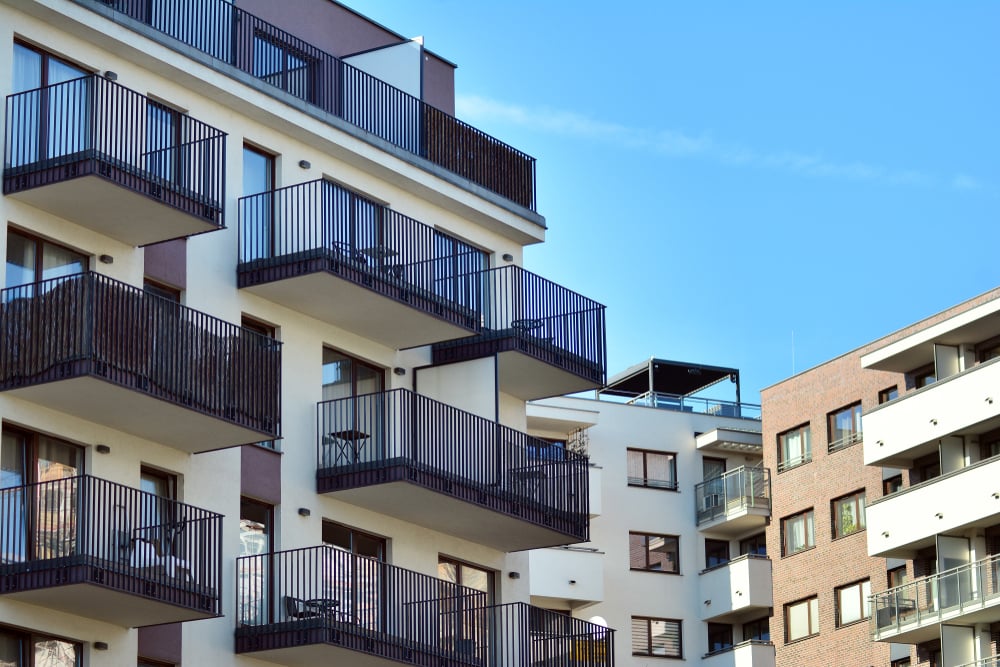What's influencing rent arrears and possession claims in 2022?
Leanne McCarthy, Claims Facilitator at Goodlord, outlines the top factors that will influence your tenants' rent arrears and your landlords' possession claims in 2022.
Leanne McCarthy
Feb 16, 2022
This time last year, an evictions ban and six-month notice periods were still in effect in England. Those measures have since come to an end, but the claims are slowly rising quarter on quarter. The possession statistics published by the Ministry of Justice are a useful tool, giving an indication of where landlord possession actions are at now versus before the pandemic. However, we need to bear in mind that it's difficult to highlight trends in the statistics which haven't been influenced by the pandemic - it will be a while yet before the figures will once again be easily comparable with previous years'.
Claims and possession statistics
Claims are slowly increasing again, now that the Covid-19 measures have been dropped, but are still nowhere near the levels they were at in 2019 - landlord possession statistics for October to December 2021 show a 42% jump quarter on quarter for the number of possession claims issued, contrasting with a 43% dip in claims volumes when compared to the same period in 2019.
What is clear from the latest statistics is that the effects from the stay on possession proceedings are still being felt, and could be for some time, particularly around how long it is taking for possession claims to progress through the courts. Whilst October to December 2021 saw the average time from claim to repossession drop compared to the previous quarter, it is still significantly longer than pre-pandemic claims.
Affordability and the cost of living
Affordability will also have an impact on rent arrears and therefore the number of claims made. The ONS has reported that average weekly earnings rose by 4% in 2021 up to October - equal to around £1,196 extra over the year. However, the cost of living is up 5.4% in December 2021 compared with the year before, and it's expected to increase to 7% in the spring. Plus, rents were at record levels in 2021, according to Goodlord's data, with an average of £980 per month - 4.5% higher than in 2020.
Landlords selling up
This disparity in affordability will only increase as the lack of rental stock continues to be an issue. Shamplina shared that Landlord Action saw an increase in instructions in 2021, with landlords serving notice on their tenants to sell their property while the housing market is buoyant.
He additionally cites the increased legislation and rising taxes pushing landlords out of the market. The Levelling Up White Paper has confirmed that Section 21 will be abolished and, although we still don't know when this will come into play, we know that it's caused some concern amongst landlords on how easy it would be to regain their property in the future. Will we see a jump in evictions in advance of the abolition, as particularly accidental landlords feel it would be safer to sell up?
The lingering impact of the pandemic
The effect of the pandemic on stock and rent arrears also can't be ignored. The NRLA has looked to its landlord member base for insights. It shares that around one in four private landlords lost income as a result of the pandemic, and is urging councils to put funding towards helping tenants in arrears, which would subsequently help landlords.
“As a matter of urgency, councils need to make use of the money they now have to help tenants get Covid rent debts cleared," says Ben Beadle, Chief Executive of the association.
It argues that, without the support, landlords will continue to lose income, they will be forced to leave the market, rents will continue to increase as the supply and demand imbalance only grows, and even more tenants will fall behind on rent - a vicious circle.
Ways to protect against rent arrears and reduce claims
Goodlord data shows that more landlords are asking for guarantors to stave off some of this risk - up 36% since 2018 - and many agents are choosing to include rent protection in their managed packages to help protect their landlords' rent. The government also trialled a rental mediation service in early 2021. The service closed in October 2021, but the possession action guidelines still encourage landlords to use a mediation service, listing TDS Resolution, PRS Mediation Service and Resolve by Flatfair as options.
Reports suggest that agents and landlords are happy to go along with this guidance. Finding a resolution for everyone, even if it means a slight delay in payment, is better than entering into a long and drawn out court process which may cost extra in legal fees - especially if the landlord has no rent protection in place. If this trend continues, we may see fewer cases progress to the courts and to eventual repossession in the future.
Want the latest lettings new delivered straight to your inbox every week? Sign up to our mailing list and stay up to date.

-min.jpg)
.jpg)


